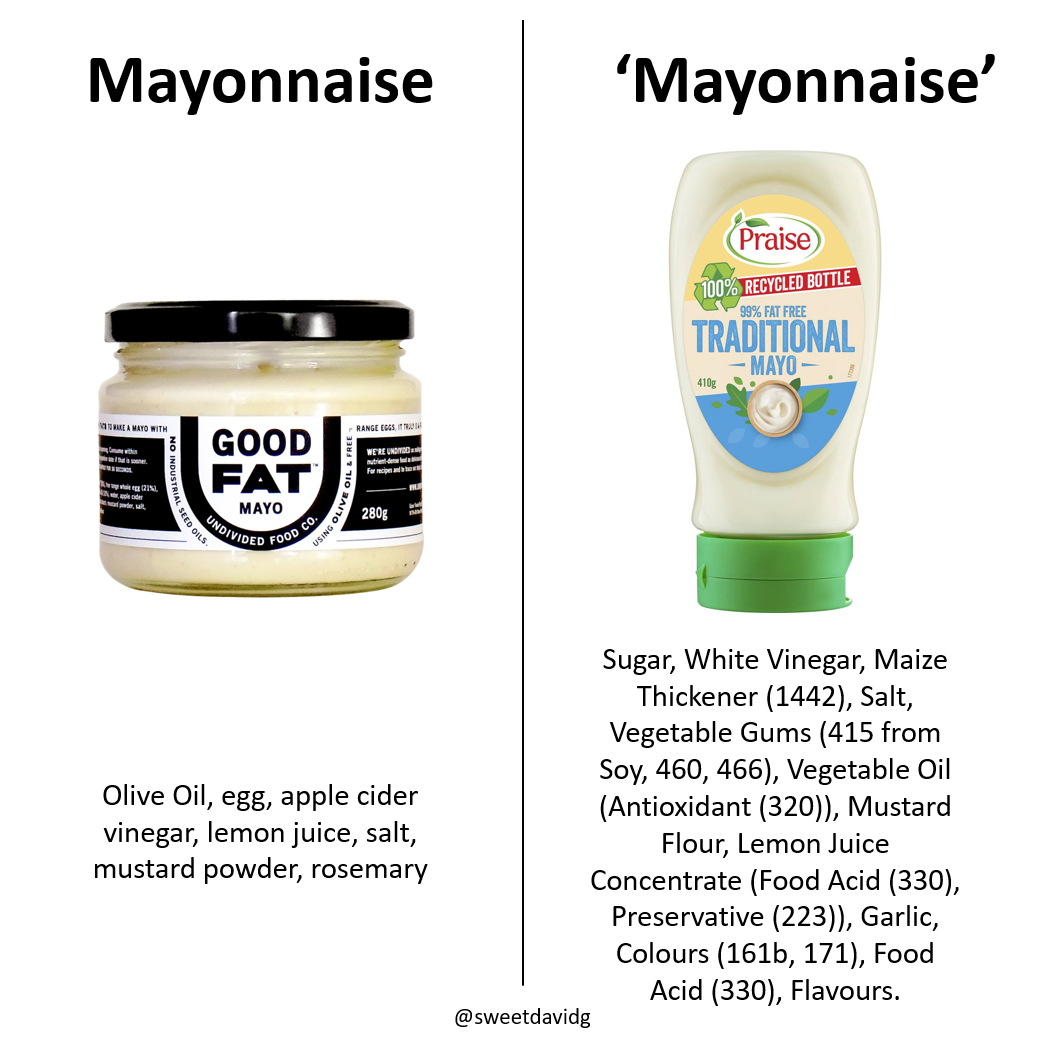
Have you ever looked closely at the ingredients in your so-called “food?” Odds are, your great-grandmother wouldn’t recognize half of them as edible, let alone healthy. In an incredibly short span of time, we’ve outsourced our meals to corporations whose main goal isn’t our well-being – it’s profit. The history of how we got here is a shocking tale of backroom deals, twisted logic, and the slow death of real food.
The Rise of “Imitation”
In these days of regulation, it’s easy to forget how recently food was routinely adulterated. To stretch profits, milk was watered down, bread bulked up with sawdust, and you were lucky if your jam contained actual fruit. These practices weren’t just dishonest, they were dangerous.
The US took action first. In 1938, the FDA was given the power to create “standards of identity” for common foods. Think of them as legally binding recipes. If you wanted to sell jam, your product had to meet specific requirements for fruit content. This wasn’t about gourmet standards; it was about ensuring a baseline level of quality and preventing outright fraud.
By 1950, almost half of US food had a standardised recipe. This meant that if you wanted to make something resembling real food, but cheaper, you had to clearly label it “Imitation.” And that wasn’t a great marketing strategy.
The War on Fat and the Death of Standards
The food industry didn’t love this system, and their grumbles grew louder in the 1970s. The low-fat trend was taking off, spurred by groups like the American Heart Foundation in their ill conceived fight against saturated fat. The problem? Traditional food descriptions rarely included vegetable oils, and fat content was regulated.
What followed was a classic case of unintended consequences. After relentless lobbying, legislation changed in 1973. No longer did “fake” foods require the “Imitation” label – they just had to provide the same level of nutrients as the original. Calories and fat were exempt, opening a loophole you could drive a truck through. The stage was set for a massive shift in what lined our grocery shelves.
The Disappearance of Everyday Foods
Want blatant examples? That little carton of “Up&Go” markets itself as a healthy breakfast which describes itself as having “The protein, energy and fibre of 2 Weet-Bix and milk”. But look closely – it doesn’t contain a single Weet-Bix! Its primary ingredients are water, skim milk powder, sugar, and a disturbing list of chemicals. Sure, it might have similar protein to real food, but so would a sawdust and offal smoothie. It’s a classic bait-and-switch, designed to appeal to our desire for convenience and the illusion of health.
And how about those mayonnaise jars? If yours doesn’t list eggs and olive oil as the first ingredients, it isn’t mayonnaise – it’s a carefully concocted emulsion of sugar, water, and who-knows-what. The same goes for countless other products. Things we once took for granted have been quietly replaced with cheaper, cleverly engineered imitations.
The Health Fallout
We’re paying the price for this deception. Skyrocketing rates of obesity, diabetes, and heart disease aren’t just about eating too much – they’re about eating the wrong things. Our bodies weren’t designed to run on the seed oil and sugar infused highly processed, nutrient-poor concoctions that now pass for food. Mass-produced “food” is addictive, unsatisfying, and disastrous for our long-term health.
The Loss of Control
Bring back the “Imitation” label! It would be a wake-up call, exposing the sheer amount of factory-made substitutes we’re consuming. This change wouldn’t lead to perfectly healthy aisles overnight, but at least we’d have a fighting chance to make informed choices.
Sadly, that’s never going to happen. Too much money, too much power, stands in the way. That in itself reveals how far we’ve fallen. In less than one lifetime, we’ve surrendered control of our most basic need to profit-driven corporations.
Taking Back Our Kitchens
We don’t have to accept this. While we can’t undo a century of changes overnight, we can start reclaiming our kitchens. Make changes now:
- Learn to read a label ruthlessly. If the ingredient list includes ‘vegetable oil’ or sugar, put it back.
- Shop the perimeter of the store – that’s where real food usually hides.
- Cook at home, even simple meals. It’s an act of rebellion against the industrial food system and the pervasive use of seed oils in everything.
- Last but certainly not least, ditch the sugar, the poison lurking in everything, labelled or not.
This fight isn’t just about better health. It’s about reclaiming the very act of feeding ourselves and our families – an act too precious to outsource.

















Recent Comments